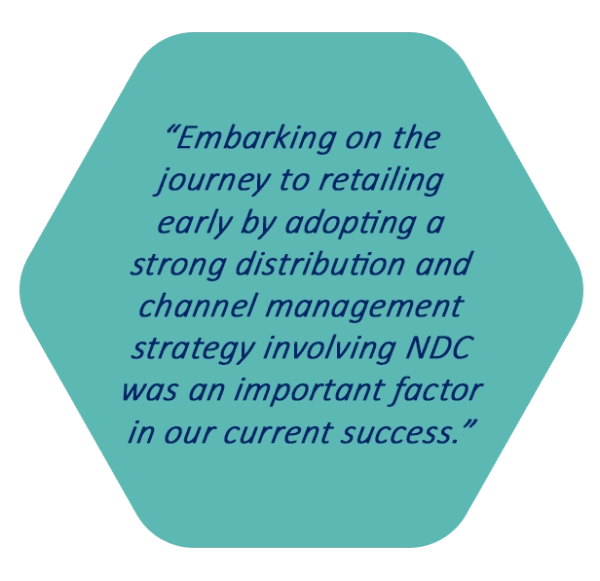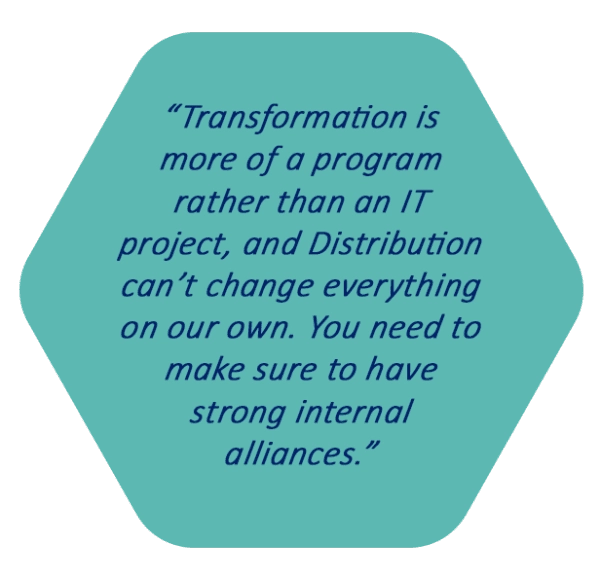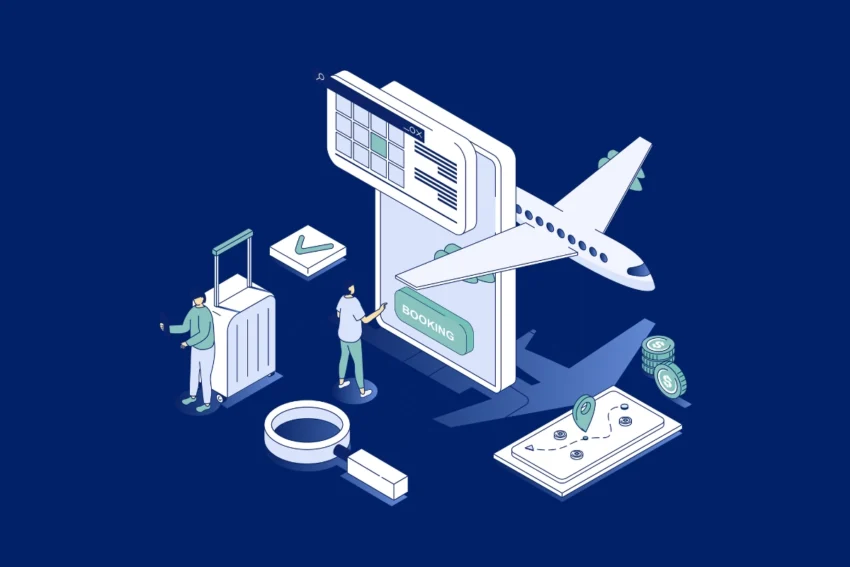As we saw in our previous blog covering ONE Order and Order Management, New Distribution Capability (NDC) can be the trigger for retailing transformation, and ONE Order as the fuel propelling the journey forward.
As an early pioneer in NDC, Lufthansa Group airlines were at the forefront of NDC adoption, and the airline group is well on its path to high-performance retailing and distribution freedom.
The group has learned some valuable lessons during the journey. One such lesson is that retailing transformation cannot be undertaken solely by Distribution, and needs executive buy-in and motivated trade partners to make it work.
Bill Cavendish, Global Business Development in Accelya, caught up with Johannes Walter, Head of Channel Partners, Lufthansa Group airlines. Johannes tells us about how NDC is at the start of the airline group’s journey toward end-to-end retailing, with ONE Order approaching on the horizon.
Bill: The industry has watched with admiration, and some degree of trepidation as Lufthansa Group airlines tore up the distribution rule book by taking back control of distribution. Despite the shock of the pandemic, the Lufthansa Group recently published a very positive set of results for 2021, a 24% increase in revenue and a return to profit in the third quarter. By March of this year, Lufthansa Group airlines’ bookings have returned to an 84% level of pre-pandemic times. What were the main drivers behind the airline group’s success?

Johannes: At the outset, embarking on the journey to retailing early by adopting a strong distribution and channel management strategy involving NDC was an important factor in our current success. It helped us weather the storm and reap benefits along the way.
Those two key drivers that made us embark on the journey were really an innovation for the customers, and cost efficiencies mean we are now well on our journey to embrace air retailing. We have been supported by an environment where we have enough competition to foster innovation and enable cost efficiency.
Making sure we had an innovation pipeline means customer-centric offers can reach our customers. In the crisis, state-of-the-art digital experiences are what our customers had come to expect. Even during the pandemic, we introduced new technology-enabled features like continuous pricing, which was an important differentiator and enabled us to stay competitive. From a customer perspective, we could quickly introduce additional products and services like Wi-Fi on board, fixed-price upgrades, lounge access, and these things that in the past would have probably taken a much longer time to implement. We succeeded in doing all of this during a global crisis.
Secondly, we wanted to ensure distribution works in a cost-efficient manner because, in our business, margins are always very tight. Around 70% of our bookings for our hub or legacy alliance are now coming through direct distribution channels. For this part of the business, it’s a large number. Direct access to customers enables us to create and deliver offers tailored to their needs, and we’re in a better position to upsell and cross-sell. That’s where a lot of the value is.
I also believe the whole value chain needs to have a sustainable business model for NDC adoption to work, and we are seeing greater plurality in the travel tech provider landscape. We have many great partners, and we also have many agencies who decided to connect directly to our API. That by itself leads to more choice for the customers, and that’s what we wanted to achieve. As a result, in the first month of this year, we surpassed the 40% mark of indirect sales that now run through NDC-enabled partner channels, and we see that going only in one direction.
Bill: That’s very interesting. On the one hand, you talk about the direction in terms of moving towards true retailing. You are more satisfied with your speed to market, your pace of innovation, and, of course, at the same time, by achieving those things, you’re creating more choice for the consumer and more choice of connectivity for your trade partners. I would really like to ask you if you could give one or two pieces of advice to an airline starting on this journey, what would they be?

Johannes: Transformation is more of a program rather than an IT project, and Distribution can’t change everything on our own. So, you need to make sure to have strong internal alliances with your salesforce, IT guys, and the revenue management colleagues to ensure all of its plays together. At the end of the day, it’s a team effort, and it requires a cultural change because it changes the way we used to do things, and that brings challenges. So, you need to have this strong base and support from an executive level to really be successful.
It’s not less important at all but rather the opposite – appreciate that it is also a change for your partners. I mean, as this is a process where we’re moving into a new world of product air retailing, and we know NDC is just the beginning of that journey with ONE Order appearing on the close horizon, you need to find a way to bring partners on board to create benefits and value, so they support the transition. We have launched our NDC Partner Program for that very purpose.
Bill: Those are extremely valuable insights, Johannes. It’s been fantastic to hear from somebody with so much experience from an organization that has achieved so much and continues to show the way.






